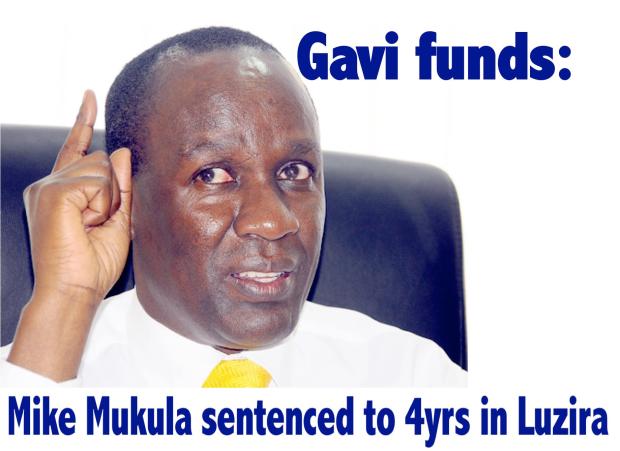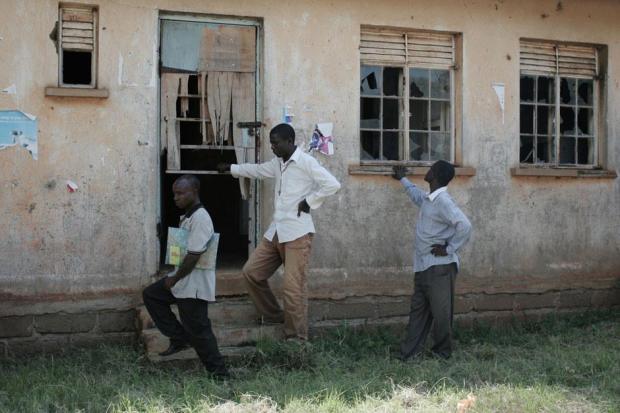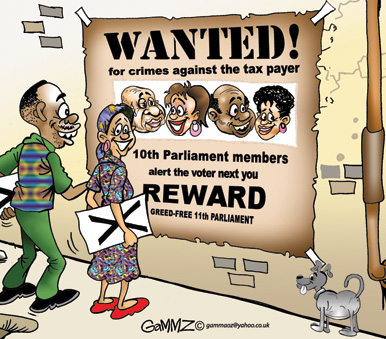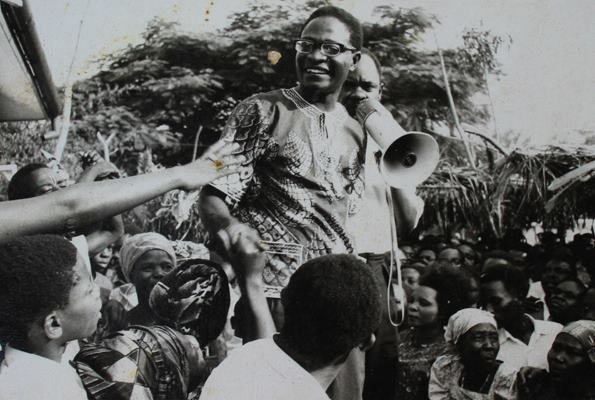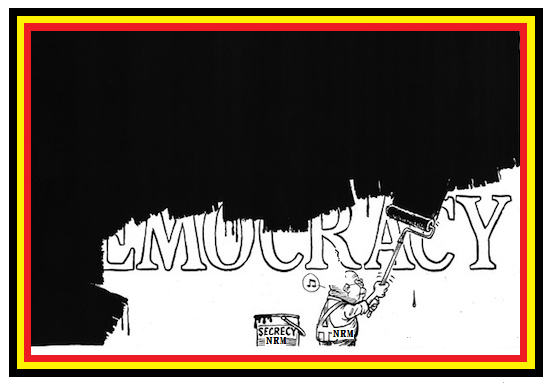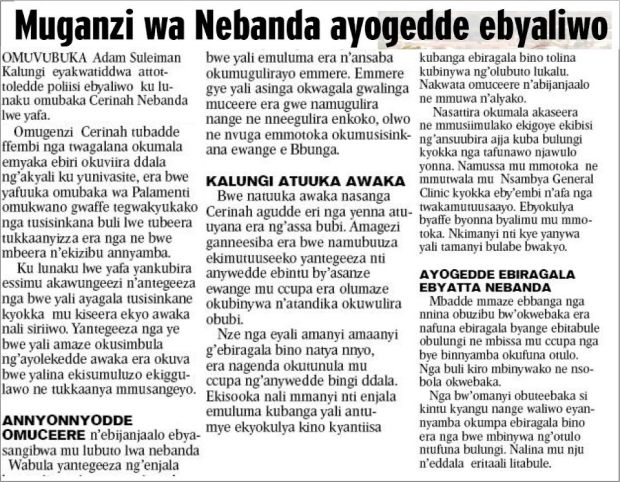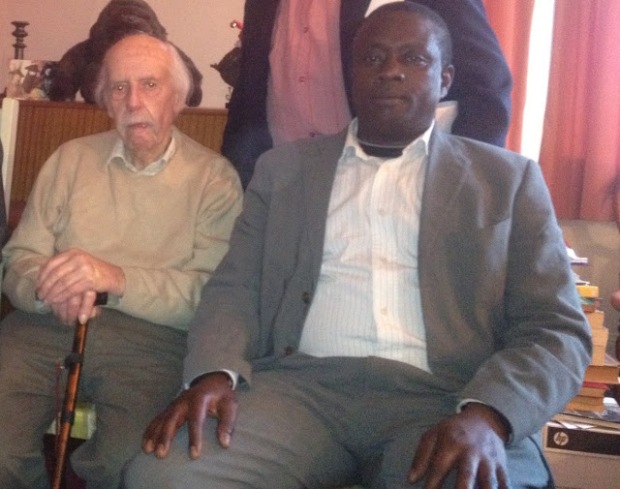 Robert “Bob” Astles (1924 – 29 December 2012). Bob Astles was born in Ashford, Kent. He joined the British Indian Army as a teenager and then the Royal Engineers, reaching the rank of Lieutenant. Of his war service, he recalls: “I enjoyed being with other nationalities and their fights for world recognition during World War II.” He was 21 when he left the United Kingdom for Africa. He was a British soldier and colonial officer who lived in Uganda and became an associate of presidents Milton Obote and Idi Amin.
Robert “Bob” Astles (1924 – 29 December 2012). Bob Astles was born in Ashford, Kent. He joined the British Indian Army as a teenager and then the Royal Engineers, reaching the rank of Lieutenant. Of his war service, he recalls: “I enjoyed being with other nationalities and their fights for world recognition during World War II.” He was 21 when he left the United Kingdom for Africa. He was a British soldier and colonial officer who lived in Uganda and became an associate of presidents Milton Obote and Idi Amin.
In 1958, he married Monica, who had come to Uganda with him from Kent. A year later, after they had divorced, Astles married an aristocratic member of the Buganda kingdom, Mary E. SsenKaatuuka, and they later adopted two children.
Mary E. Ssenkaatuuka served as Permanent Secretary, Ministry of Sports and Culture under Frances Nyangweso later on Idi Amin appointed Ssenkaatuuka Minister of Sports and Culture while Hajati Farida Kateregga the Wife of Hajji Kateregga from Kawempe took over the duties of permanent secretary in the same ministry.
Robert Bob Astles later lived in Wimbledon London, and continued to deny the allegations for which he was imprisoned. After returning to Britain, he dedicated his life to campaigning against superpower interference in African political and economic affairs. He also contributed political commentaries to a number of publications associated with Africa.

In the photos with Bob Astles at his residence in London is Ezzelddeen Haggaz and standing behind is Captain Muhammad Seruwagi. Bob Astles died in December 2012 at the age of 88
The last days of Bob Astles! His distinctive recollection
Question: As a person who knew Uganda very well since your early days what is your account about the country?
Astles: The most progressive and advanced of all African countries if we consider Buganda alone within the period 1900 to 1960 but fell somewhat by being involved by British Colonial power into the formation of a country involving mini-nations.
Question: What was your role, contribution to the development of Uganda?
Astles: Colonial officer within the Ministry of Works from 1952. I set up a progressive Tutorial’s farm and the formation of Uganda Aviation with the first African Directors from Kenya and Uganda. Semei Nyanzi was a Ugandan and a Kenyan director was Professor David Wassaw. Later I understand he become a prominent politician. I was also a Chairman and founder member of the Anti-Racial Uganda Club under the leadership of Governor Sir Andrew Cohen.
Question: What are the difficulties you found in the country where you had stayed for quite a reasonable number of years?
Astles: I was tortured detained on a number of occasions, but I trust Ugandans. If they were not friends, I would be the lingering skeletons on this planet. At one time Idi Amin ordered that I should be tortured and I was placed in a container full of the mixture human feces and urine and only my neck remained in air. I spent a good number of days in jails.
Question: You have mentioned Amin, what was your relationship with him and how did you meet Amin…?
Astles: When I was a pilot, I was told by Dr. Apollo Milton Obote to fly Amin to Congo for operations around Katanga regions. That was my first time and he liked me. We came to know each other but it was the president that had directed me to fly him to Congo. Then during around when Uganda was about to host the OAU, he invited me to help in the civil aviation, which he named Uganda Airlines.
Question: People are putting in to you that you terrorized them during Amin’s regime when they were smuggling some goods. Is that true? To whose order were you operating?
Astles: Smuggling is part of corruption and as an individual I hate corruption because it has ruined the entire whole of Africa. Second those are total open lies about me. In the first place Uganda is my nationality, I have a family in Uganda and any sober person wouldn’t wish them the abject poverty. Some greedy politicians who used to engage in such scum are peddling those lies. They are not mentioning about items that used to come in. I told you that all my plans were to help the common Ugandan irrespective of his or her background. For example, when I started Civil Aviation which was later named Uganda Airline was it for one man? Of course it helped every Uganda until it has been disbanded. I don’t think it still has a single plane.
Question: How many exact years did you spend in Uganda?
Astles: I first entered Buganda in 1949 on special duties during the Bataka Riots. And I was impressed with the Baganda and their way of fighting against Colonialism. Then I decided to become part of Buganda and resigned my Engineering work in Jordan. That was a very difficult decision and worse than elsewhere on this planet.
Question: Before coming to Uganda which other countries in Africa, Europe, Asia, Latin America, and Middle-East had you stayed in?
Astles: I had served in Indian Army and Middle East. I enjoyed, being with other nationalities and their fights for world recognition, during the World War II. Most of the guys from Africa in particular were brilliant at the front line, but unfortunately, their contributions are not mentioned.
Question:-[Can you enumerate some of] the messes that Uganda has faced before and after independence?
Astles: Augustine Kamya’s Asian Boycott–that boycott did considerable damage before Independence; Protestant and Catholic political issues in Buganda and East Acholi; Stubborn attitude of Katikiro Kintu before and after, hatred that instilled between Baganda, Acholi and Langi, also had a very big damage; Going into Independence with a white-officiated army with no African cadre officers; Giving all training to foreign powers both West and East had a lot in destabilizing Buganda.
Question: What problem does the government likely face if it has a large number of untrained/uneducated people?
Astles: Disaster. We have seen this with the East and West of Africa, especially in the armies and consequently coups. Untrained people, young men in particular are easily persuaded to join the rebellions and the results of rebellion are loss of lives. These kinds of rebellions have considerably did a substantial damage to almost every African family.
question: How would you shed light on events of the globe that caused African, Latin America, Asia and Middle East countries to lag behind in comparison to their counter parts in Europe, America and Canada?
Astles: Catholic anti-Protestant against child birth. Illiteracy and [ethnic] disputes Corruption, mainly introduced by the Western subjects entered into independence, during the time of the concept certain faith. High technology the windup Gramophones to the marvels of the chip makes it Impossible for the Third World to catch up. Only Africa can supply the essential minerals to keep the West alive. But African leaders fail to see this and pocket the pitiable bribes for themselves. For instance Chad, Equatorial Guinea, Angola, South
Africa, Nigeria to name a few. Just think of the 1984 Bhopal disaster or Uganda’s Saafi Saafi cotton scandal.
Question: What was your main role in Idi Amin’s government?
Astles: Get this right! In 1964, I was directed by Dr. Apollo Milton Obote’s government to be Amin’s pilot during the Congo crisis until my position was taken by Israeli pilots in 1966. Since 1966, I had never seen Amin, until May 1975. He had arrested me in 1971, along with Ex-minister Kalule Ssettaala and placed me into Rustication. In 1972 he announced on Radio that I was one of the rotten apples and slung me into Makindye Military barracks for 17 weeks, later to be introduced on UTV and Radio Uganda to deplore the old regime of Obote. Then in May 1975, he called me back from Rustication to return my Uganda Aviation for the O.A.U Summit. In the first week I found a massive corruption and reported such to his close friend and Minister Lule. Lule betrayed me. Then Amin nationalized my Aviation. I fled Uganda in May 1976 to UK, and then I was re-arrested in Kenya and brought back to Uganda where I spent about six years in Luzira prison.
Question: I understand that one day, you were going to be hanged but you later found that the machine was faulty. How do you recall that moment?
Astles: Luzira Political prison was to show me the real genuine quality of the Ugandan people. Myself being the only white man, out of the 2,000 prisoners, I never quarrel in six years. Both political detainees and Uganda prison staff looked after me. I was the evil for the Tanzanian troops that tortured me to the extent that I could not eat and I used to be fed like a baby. They killed Uganda detainees. I was tortured to the point of being fed like a young chimpanzee. By then political detainees used to smuggle in food for me. That is why I have lot of respect for Africans. They are so determined because they could at time risk their lives to at least ensure that I get something to eat.
Question: What allegations had been placed against you by the by then Regime to be detained again?
Astles: Some allegations were made but had no substance and were thrown out of court. I found out that one of Obote’s ministers was after revenge over his double standard and dealings whilst in exile with Obote and Amin’s Brigadier Maliyamungu, so I had to be kept quite.
Question: How would you advise the principal backers of those autocratic leaders that hold back their citizens?
Astles: These people are supported by America. No one can advise America. They need oil and minerals to serve and guide their interests. There is no compassion in this country. You just cannot talk to Uncle Sam. I have the hopeless situation to be rectified. There is no other solution other than looking on. They have already established in Africa and it would be disaster to remove Museveni. In my opinion it was good for Ugandans to give Museveni a third term to avoid any obliteration. Ugandans in fact were wise. One can’t blame them. They are focused. It seems that they had binoculars. To avoid chaos they had no alternative but to give the greedy person other than returning to the previous problems.
Question: In your analysis, what impact or change did Amin bring to Uganda?
Astles: He brought disaster. Certainly he helped the very poor and beggars but ruined the nation’s economy. The British, Asians who refused to take out Uganda’s citizenship, can thank him for being allowed into Britain. All this Amin affair was brought about the by then British Political thinking and distrust of African Socialism [which Obote advocated].
Question: What do you think to be the main cause that hindered the development of Africa?
Astles: Corruption is the major factor that has hindered African development more than education. Otherwise Africa would be one of the richest continents on this planet. They have natural resources, but corrupt leaders supported by the superpowers of this world have contributed to the Africa’s lagging behind. Most of African leaders’ bag in even small bribes, which is a real betrayal of their respective country and above all nationalism, is no longer at the hearts of these leaders. They could have united and started to dictate to the superpowers that ‘this should be like this, we want this,’ but the superpowers still dictate and decide for Africans.
Question: In brief, how did you find Africans and Uganda in particular?
Astles: Truly speaking, I did not find enemies and certainly lived in peace on my farm in Kyaggwe Luwafu. My troubles came with the corrupt individuals pretending to serve Amin for example Henry Kyemba former Minister of Health, Amin trusted him and gave him about Seven Million US Dollars to go and purches medicin for the Ministry the man disappeared with with the money to today. As for me I have traveled widely and I have seen Ugandans, the real jewel of Nationhood. They are truly the jewels of Africa. If they re-shape their opinions, you can see the real Pearl of Africa. I would be dead, if I had a big headed character. I always tell journalists that, if you want to survive in Africa just respect Africans. They will in turn respect you and will not hate you. But if you do otherwise, it will be very big problem for you. Africans are good intellectuals. They are not mentioned in their contribution during the World War II… I want to tell you, that many Baganda who served in the World War II, were recruited in medicine, Intelligence or anti-Aircraft.
Question: How do you rate the current Buganda and the time you came in the country?
Astles: Simple. Everything about the government of Buganda was a real eye-opener. From 1949 and exactly from January, 1952 when I worked closely within the Baganda Society, first with Mukasa Churchill whom I had met during the Burma fighting. On our second meeting in Buganda, he gave me the name of Lubowa from e’Ngo (Leopard) clan in 1953. And other Baganda like Leonard Basudde of Masaka, Kawalya, Kaggwa, Sempa, Kintu (Katikiro) and many other great names. Buganda had a lot in common to Britain. Buganda was an amazing Kingdom and perhaps the base of democracy in the entire Africa. And I believe that, the kind of democracy the world has seen in Africa. We have got to see Buganda great again before it’s too late and corrupted by the present Americanism and West seeking trade. It’s bad enough to see the once great Kingdom getting weaker and weaker. From imported endemic AIDS, which has now consumed human lives like maize-mill machine, it is real tragic by the Western sex trade.
Regards
Astles: Truly speaking, I did not find enemies and certainly lived in peace on my farm in Kyaggwe Luwafu. My troubles came with the corrupt individuals pretending to serve Amin for example: Henry Kyemba the former Minister of Health, Amin trusted him and gave him about Seven Million US Dollars, to go and purches medicin for the Ministry, the man disappeared with the money to today. As for me I have traveled widely and I have seen Ugandans, the real jewel of Nationhood. They are truly the jewels of Africa. If they re-shape their opinions, you can see the real Pearl of Africa. I would be dead, if I had a big headed character. I always tell journalists that, if you want to survive in Africa just respect Africans. They will in turn respect you and will not hate you. But if you do otherwise, it will be very big problem for you. Africans are good intellectuals. They are not mentioned in their contribution during the World War II… I want to tell you, that many Baganda who served in the World War II, were recruited in medicine, Intelligence or anti-Aircraft.
Question: How do you rate the currentBuganda and the time you came in the country?
Astles: Simple. Everything about the government of Buganda was a real eye-opener. From 1949 and exactly from January, 1952 when I worked closely within the Baganda Society, first with Mukasa Churchill whom I had met during the Burma fighting. On our second meeting in Buganda, he gave me the name of Lubowa from e’Ngo (Leopard) clan in 1953. And other Baganda like Leonard Basudde of Masaka, Kawalya, Kaggwa, Sempa, Kintu (Katikiro) and many other great names. Buganda had a lot in common to Britain. Buganda was an amazing Kingdom and perhaps the base of democracy in the entire Africa. And I believe that, the kind of democracy the world has seen in Africa. We have got to see Buganda great again before it’s too late and corrupted by the present Americanism and West seeking trade. It’s bad enough to see the once great Kingdom getting weaker and weaker. From imported endemic AIDS, which has now consumed human lives like maize-mill machine, it is real tragic by the Western sex trade.
Ezzelddeen Haggaaz
Cairo International Bank UK Representative.
Mob{1}:00447960040088 Mob{2}:00447960607461
Email :ehaggaaz@yahoo.co.uk UG:00256772904848
Website: http//www.cairiointernationalbank.co.ug

